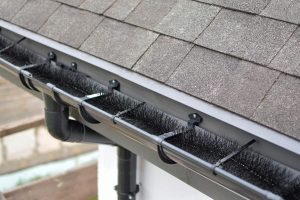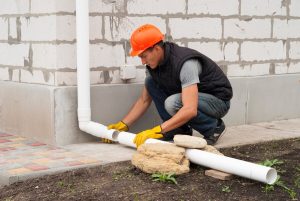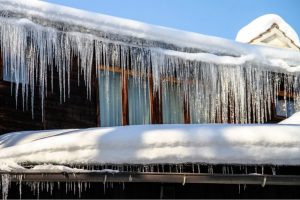Commercial vs. Residential Roofing: What’s the Difference?
Mar 18, 2023

Although all roofs serve the same primary function, to provide protection and shelter, it does not mean that all roofs are the same! Between commercial and residential roofs, there are many differing factors such as design, materials, maintenance, and installation that make each unique. The most significant differences between commercial and residential roofing are attributed to slope, scale, and scope of work.
Design
A major distinction between commercial and residential roofing is the design. Generally speaking, residential roofs tend to be constructed to fit a specific aesthetic whereas commercial roofs cater towards functionality.
Commercial roofs tend to have a low slope or are entirely flat. Additionally, commercial roofs are typically much larger than residential roofs. Flat roofs help to utilize space inside a building making them a viable option for business owners. There are also a number of additional features that can factor into the design of a commercial roof such as airflow systems, smokestacks, external piping, and more.
Residential roofs are usually pitched, meaning they have some degree of slope. Their steeper slopes allow for curb appeal and functionality in harsh weather. Maintaining, repairing, and replacing is easier with residential roofs when their design is considered.
Materials
The type of roof you have will dictate the type of materials that will cover your roof.
Residential roof options can include:
- Asphalt Shingles
- Luxury Asphalt Shingles
- Wood Shakes and Shingles
- Clay Tile Roofing
- Concrete Tile Roofing
- Copper Roofing
“Classic” roofing materials such as the ones listed above are typically used for residential properties because of their mid-to-high pitches. A residential roof typically needs plywood nailed to wooden rafters to create a protective underlayment before installing any of the above options.
As for commercial roofs, they are commonly made up of rubber membranes and other systems such as built-up roofing and tar and gravel systems. The exact number of layers will differ depending on the type of commercial roof being installed but insulation, decking, protective coating, and reflective coating are usually involved.
Maintenance
Both commercial and residential roofs require some level of attention. Maintenance on commercial roofs is much more demanding due to their flat surface and large square footage. With flat roofs, more maintenance is required to keep the roof in good working order as pesky leaks can make their way through if not properly taken care of. In areas that experience a heavy amount of rain and snow, it is important that flat roof owners regularly have their roof inspected to prevent such leaks. Luckily, flat roofs are walkable making them easy to inspect.
In contrast to flat roofs, the slope on residential roofs makes it easier for rain, snow and other debris to flow off and away from the roof. Residential roofs need less maintenance, and when they do, they are easy to service.
Both commercial and residential roofs require attention, but in differing ways. Regardless of roof type, owners should keep gutters clean, especially during the fall and winter to prevent blockages, ice damming, and other repairs.
Cost & Installation
Due to their size, commercial roofs have a few factors that need to be considered when installing. Installation occurs in sections and special attention must be paid to the weight of the equipment that will be housed on the roof. Overall square footage, usage of advanced tools, protective equipment, and materials can attribute to the cost of a commercial roof. Such expenses attribute to the cost of a commercial roof and generally, they will price higher than a residential roof.
Residential roofs are smaller in size making them easier to install and less costly. Most often, residential roofs can be installed within a few days. Commercial roofing, on the other hand, can take significantly longer. Commercial roofing requires special on-site equipment in addition to the differing installation techniques that are utilized.
Whether it be a commercial or residential roof, you should always work with a professional roofing company or contractor that specializes in the work you are looking for. D’Angelo and Sons has highly experienced roofing experts that are happy to install and repair exactly what you are looking for. For all your commercial and residential roofing needs, give D’Angelo and Sons a call today!





